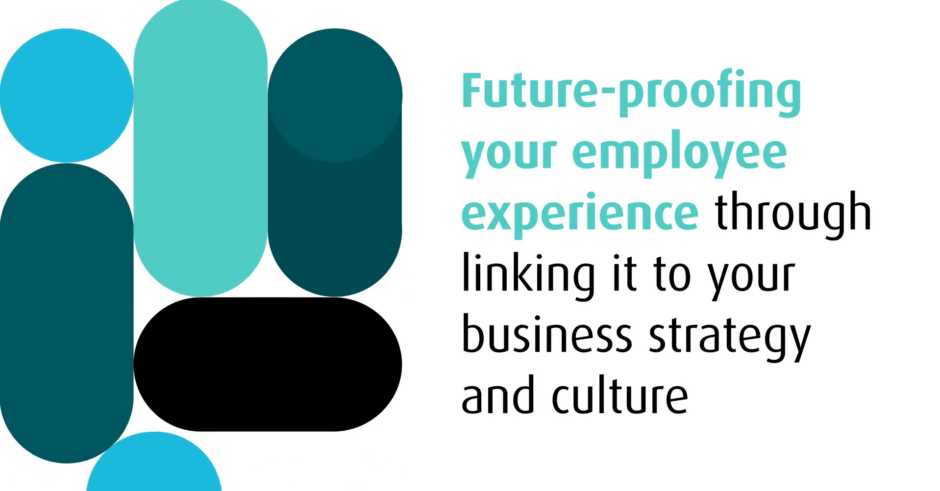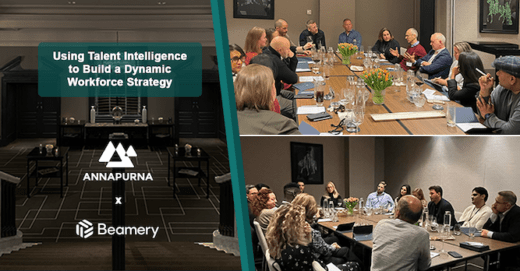The new and evolving work isn’t the big change that everyone keeps alluding to, it’s actually just a shift in which different things are at the top of employees priorities. Organisations are now talking about culture as if it’s a new concept yet this is something that all organisations have been challenging for years, especially those that have already been working in a hybrid way before the pandemic forced their hand.
The BTN partnered with UKG, an HR workforce management solutions provider, for a VIP executive round table around the topic of ‘Future-proofing your employee experience through linking it to your business strategy and culture’.
The conversation was interactive and brought about the following discussion points:
Employee Experience or Individual Experience?
What is the experience, as an employee, that you’re going to have and how are we, as an employer, going to look after you? There needs to be a strategic direction for how leaders are creating employee experiences to create cohesive management and messaging around the employee experience. The process of employee experience should actually become less of an output from an employer and one that is more focused on realised what is important and to whom. The employee experience then becomes an individuals experience with the purpose of an employee and the ultimate connection that they would have with the organisation. Gone are the days when an employee experience is simply offering out a single experience to our community and expecting that to work. We should be getting smarter with how we create experiences and using analytics to truly add value, not just focusing on age or location as a metric. There was an interesting conversation amongst the group which touched on the difference between Employee Value Proposition (EVP) and Employee Experience. EVP was defined as what we claim to offer as an organisation to our employees and the EVP then feeds into Employee Experience, which breaks down into exactly what people want to get out of the human capital processes.
We need to be constantly experimenting with different people and look at an individuals experience with purpose and ultimately, their connection with the organisation.
Frictionless processes must be the new normal
Digital-first must be the way that companies now operate. We want our employees to be spending time on the important things that they enjoy, rather than monotonous tasks. We should be using technology in optimum ways to do little things easy and the bigger things better. Our focus should be on using technology to create autonomy, allowing our employees to add mastery to their skills, resulting in them seeing their purpose. Technology or algorithms will never be able to make people decisions but the technology should allow us to facilitate conversations or provide advice through data-led analysis. Our employees want the experience they have at home with their own devices and companies they deal we, if we can’t offer the same or communicate why we can’t offer that then employees will already have negative connotations of their employee experience.
The changing world of work is actually not too different but priorities are changing
Whether ‘the great resignation’ comes to fruition or not, employee priorities have evolved. Wellbeing, mental health, trust, empowering employees and inclusion are a top priority now but how can we ensure the basics are still done well? Organisational culture is being reimagined and empowering our employees is even more important in a hybrid environment We should not be creating a big list of benefits as specific people are looking at specific things so how can we use personas to give our people what they actually want.
We should be using a blend of qualitative and quantitative data to allow us to be reactive with our analytics, which can then work in fusion with what our North Star change is as an agenda to create a dream organisation for our employees. HR should be able to define the North Star for the organisation but also understand that it is probably not going to stay the same as the organisation evolved itself. We should always be evaluating and being as human as possible to ensure we don’t become static.
The role of the leader has changed for good with the hybrid environment and it is up to them on a day to day basis to incorporate employee experience as part of everything they do. It is truly an input, rather than an output.
HR needs to ensure that they are putting the ‘Human’ into ‘Innovation’ and driving the organisation to its future point. It is well known that employees leave managers, not organisations, so how do we ensure that our line managers are having the conversations with their team and that there is a level of emotional quality to these meetings that there would be in person. We might not necessarily be able to ‘measure’ this and we might even be able to get away with it in the short term but we do not know the impact of the current circumstances will have on our organisations in 2, 3 or 5 years time. Our focus on the Employee Experience, therefore, should be at the top of our agendas. We must ensure our culture is inclusive, we must strive for seamless experiences and we really need to understand why people want to work in our organisations.



